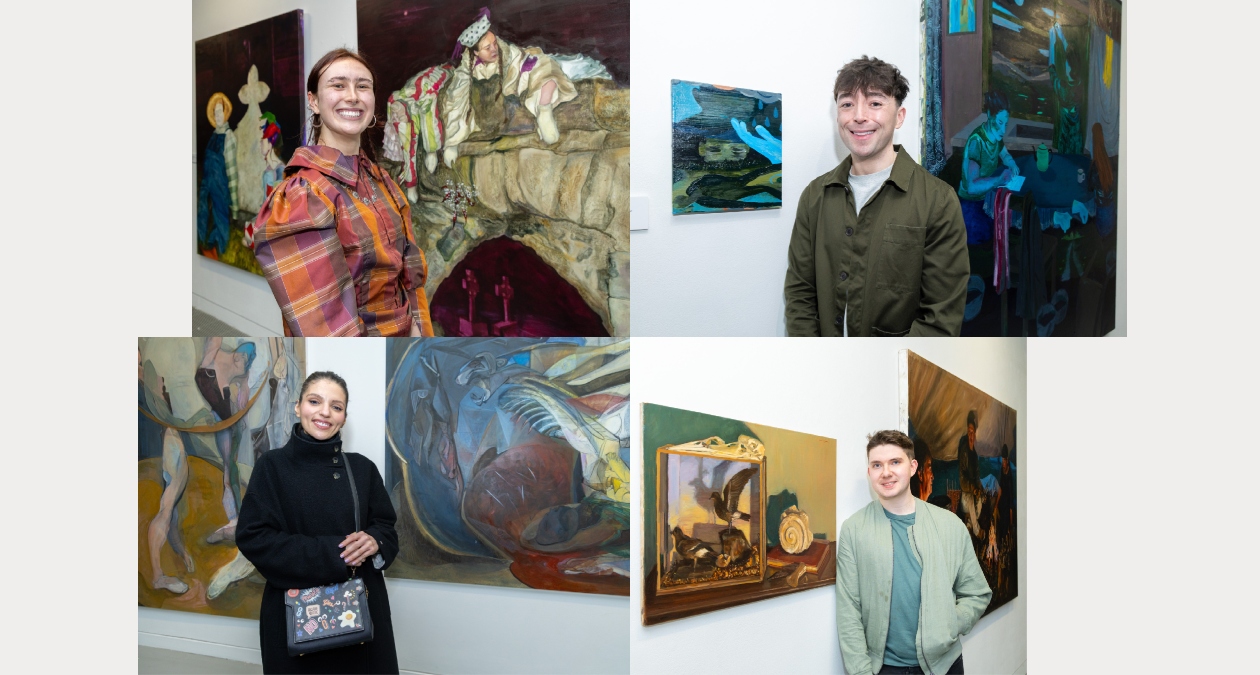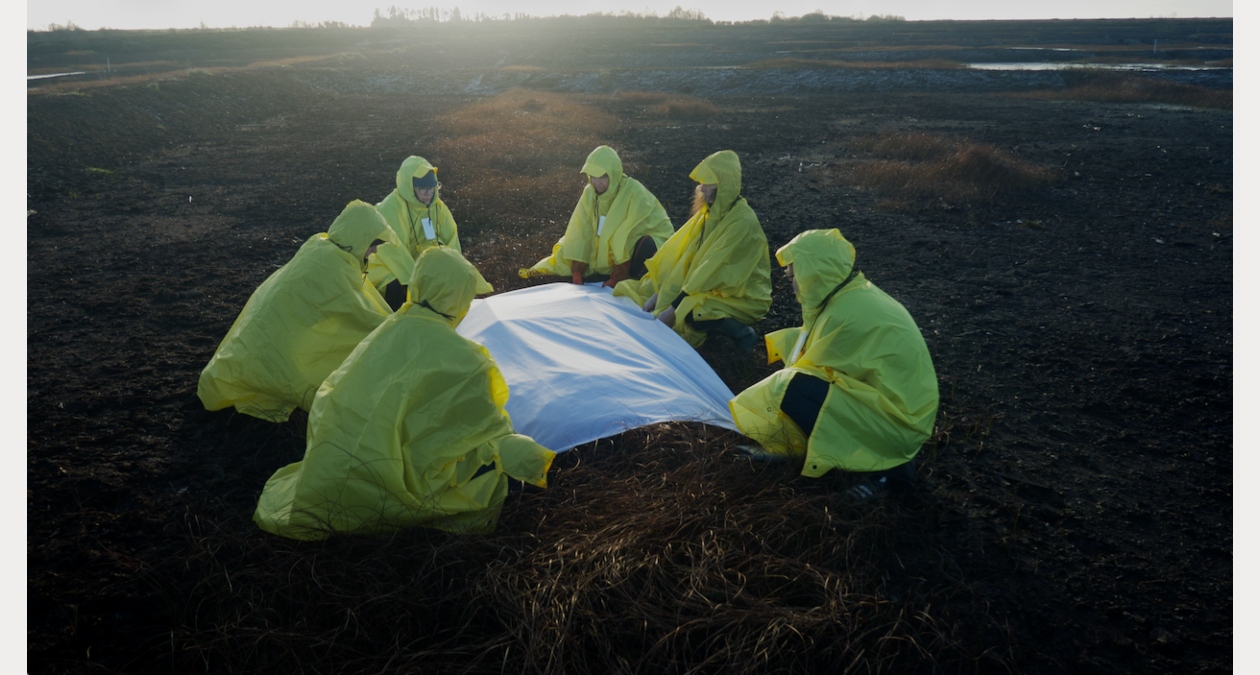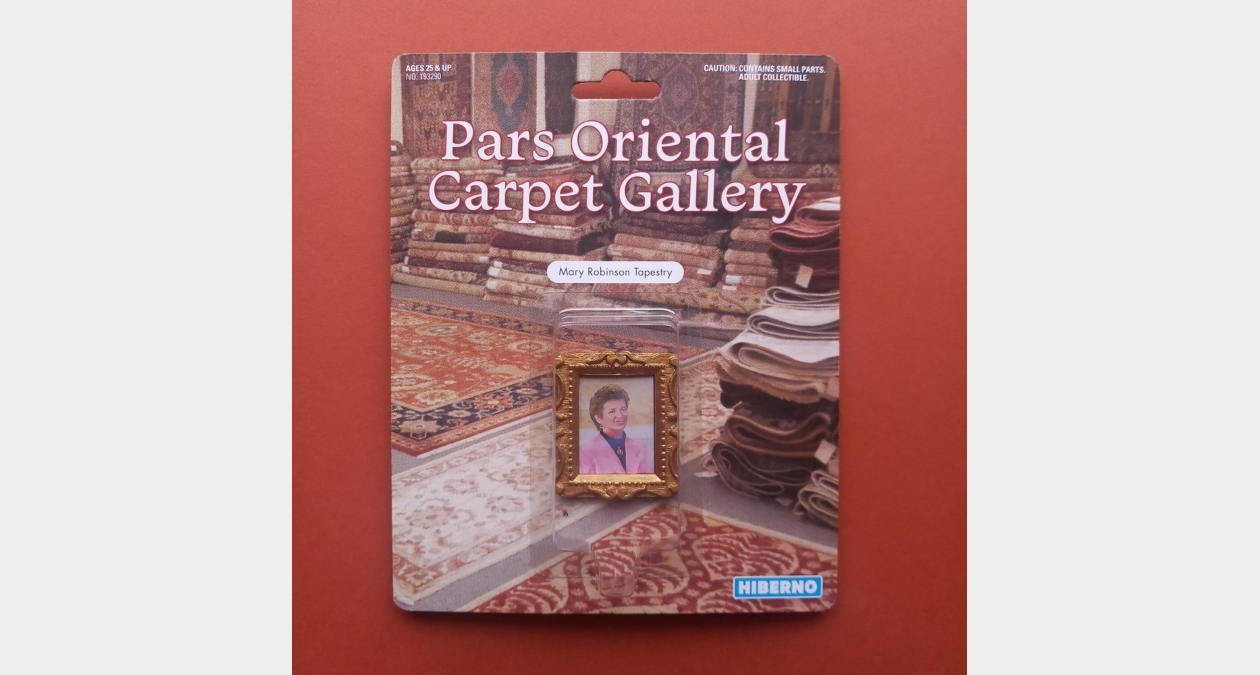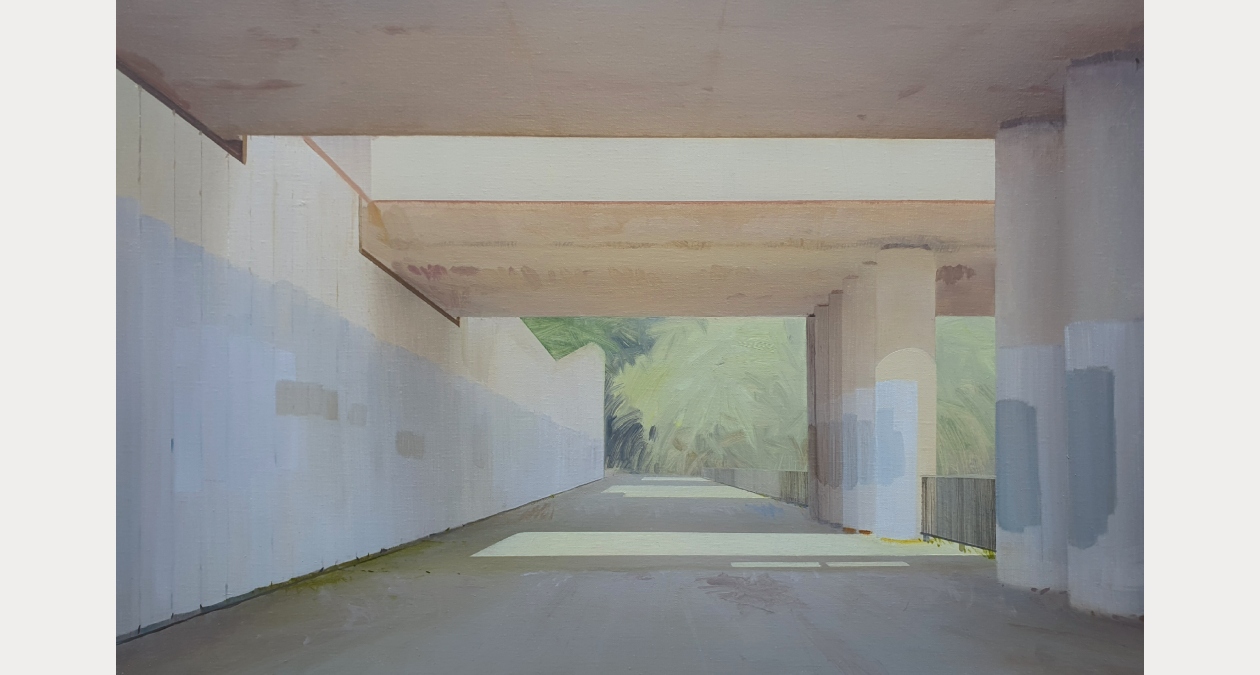Emotional Archaeology
Daphne Wright
sculptural languages, which have been quietly influential. Her work is the result of a relentless curiosity into the way in which materials can create an involvement with often unspoken human preoccupations.
Casting, sound recording, filmmaking and drawing result in a series of works that explore issues such as parenting, aging and mankind’s complex relationship with animals. Wright is not afraid to embrace domestic and familial subjects in order to encourage
a genuine psychological commitment from the viewer; this is a retrospective look at Wright as an emotional archaeologist.
The artist came to prominence with a series of works using the vocabulary of decorative Victorian plaster to highlight the home as a site of loneliness and isolation. Wright turns her hand to a variety of materials, often using traditionally representative craft, decorative and figurative techniques in order to explore difficult ideas. In a deliberate move to shift sculptural language she has used domestic tin as a material to create works that at a distance look precious and alluring, but close up are vulnerable, wrinkled and patched. Taking delight in subterfuge, Wright often includes spoken song lyrics and rhymes in order to create an absorbing atmosphere for the objects to inhabit, a gentle contradiction of the visual. Looking beyond the domestic sphere for a representation of the human condition, Wright has turned her attention to mankind’s complex relationship with animals – rearing, petting and breeding. Over a period of ten years from 2004 to 2014, Wright perfected a casting technique to embody animal life as a stand in for the agony and ecstasy of existence. The exquisite perfection of the deceased animals reproduced in white sparkling marble dust compound is both shocking and moving. For Wright, the emotional and practical difficulties of sourcing and reproducing the dead bodies are part of an archaeology of meaning that charges the potency of the objects.
More recently, Wright has turned her interest to creating human presence by meticulously creating casts of her sons in jesmonite; a material favoured by taxidermy and palaeontology. Wright’s works create an aura, a mise en scene; there is shadow, echo and distance where there was once breath, smell and intimacy. Matching media appropriately to ideas Wright has also produced a number of works using video exploring our conflicted emotions towards the elderly and children. The latest development for Wright is a visceral joy in working with unfired clay. Drawing on the naive aesthetics of surrealism and children’s art, the artist has begun to experiment with rendering a series of domestic objects and stick drawings of mothers and children in this humble material. Emotional Archaeology will include major projects by the artist including Where do Broken Hearts Go, 2000, Stallion, 2009, Kitchen Table, 2014 and Domestic Shrubbery, 2009.
A new publication will accompany the exhibition. Daphne Wright: Emotional Archaeology, edited by curator Josephine Lanyon and is available from RHA bookshop, €20.
-
Date:
20 Jan, 2017 - 26 Feb, 2017 -
Time:
Monday – Sunday: 11:00 – 17:00 Wednesday Late Opening: 11.00 – 20.00 -
Price:
Free -
Info:
Visitor Safety
We look forward to welcoming you at the RHA.
In line with Covid-19 safety protocols, visitors will be asked to wear a mask.Opening Times
Gallery Hours:
Closed Mon
Tues – Sat: 11 – 17
Sun: 12 – 17
Wed Late Opening: 11 – 19Office Hours:
Mon – Fri: 10 – 17Admission Always Free. Donations Always Welcome.
Getting Here
15 Ely Place, Dublin 2, D02 A213
Tel: +353 (0)1 661 2558
Email: info@rhagallery.ieThe Royal Hibernian Academy is located in the city centre of Dublin, adjacent to the National Gallery of Ireland and National Museum of Ireland and within close proximity to a wide variety of public transport services, such as Dublin Bus (Routes: 39A, 46A and 145) and Dart (Pearse Dart Station).
Access
There is plenty of parking available in the neighbourhood and the RHA is fully wheelchair accessible.
Cafe
Margadh RHA is a speciality food and wine outlet from the people behind Margadh Howth, Mamó Restaurant, Elm Epicurean and Barrow Market. The wine bar serves morning fare, lunch, hampers and gifts.
Mon – Sat: 11 – 17
Tues – Sat: 9 – 15
Sun: 12 – 17



